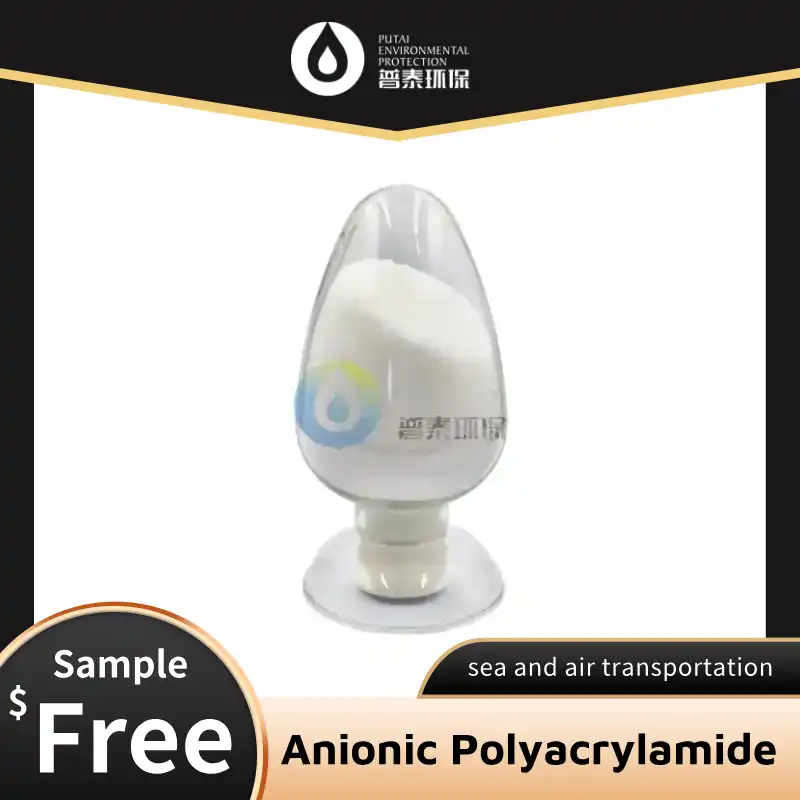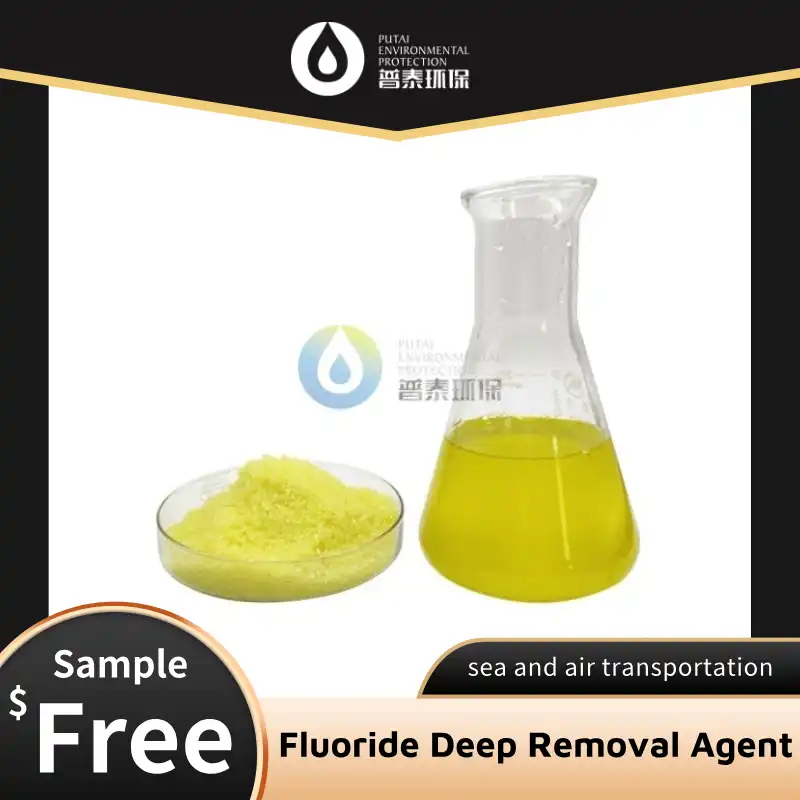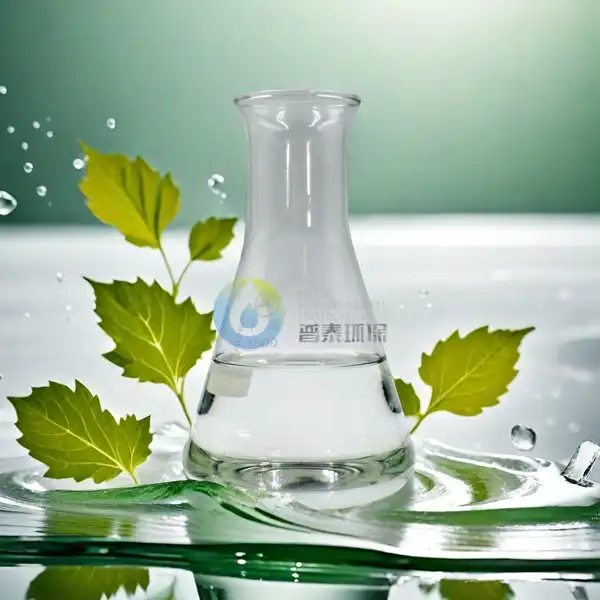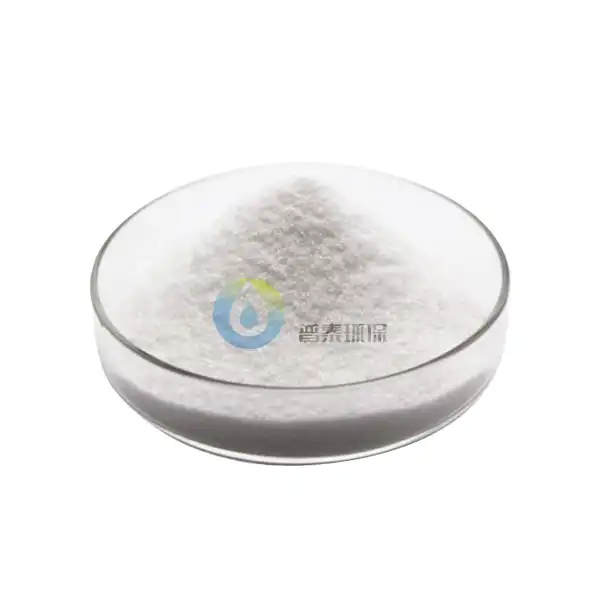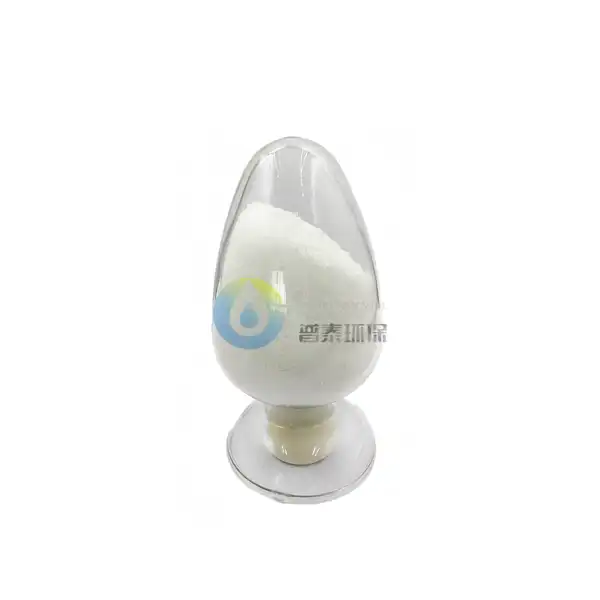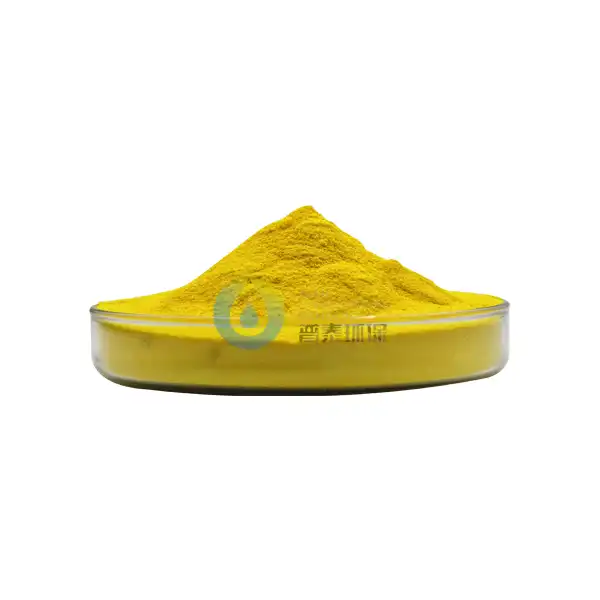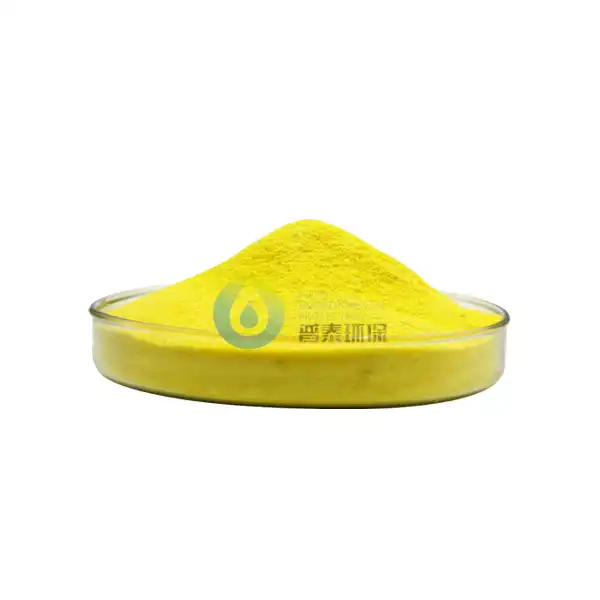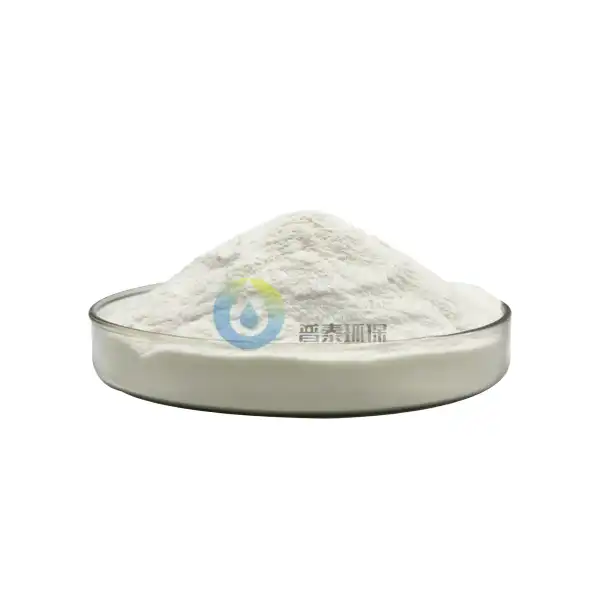What are the Common uses of CAS 9003-5-8?
CAS 9003-5-8 is a chemical compound with a wide range of applications across various industries. Understanding its common uses can help us better appreciate its importance and potential in different fields. In this blog, we will explore some of the most frequently asked questions about CAS 9003-5-8 and its uses.
What industries commonly use CAS 9003-5-8?
Water Treatment Industry
In the water treatment industry, CAS 9003-5-8 plays a crucial role. It is often used as a flocculant. Flocculants are substances that help in the aggregation of fine particles in water. CAS 9003-5-8 has the ability to bind with these particles, causing them to clump together and form larger aggregates. This makes it easier to separate the solids from the water through processes such as sedimentation or filtration. In drinking water treatment, it can remove impurities like suspended solids, algae, and some bacteria. For wastewater treatment, it helps in the pre - treatment stage to reduce the load on downstream treatment processes. By effectively removing contaminants, CAS 9003-5-8 ensures that the water meets the required quality standards for various end - uses. In industrial wastewater treatment, it can be used to treat effluents from industries such as mining, food processing, and textile manufacturing. In mining, it helps to separate the valuable minerals from the waste slurries. In food processing, it can clarify the wastewater by removing organic matter. And in the textile industry, it can treat the dye - containing wastewater, making the water reusable or suitable for discharge.
Paper Industry
The paper industry also benefits greatly from the use of CAS 9003-5-8. It is used as a retention aid. During the papermaking process, a large amount of fine fibers and fillers are present in the pulp suspension. CAS 9003-5-8 helps to retain these fine components on the paper web. This not only improves the paper's strength and quality but also reduces the loss of fibers and fillers, which in turn saves costs. It can also act as a drainage aid. By improving the drainage rate of water from the pulp, the production speed of paper machines can be increased. This leads to higher productivity and efficiency in the paper - making process. Additionally, CAS 9003-5-8 can enhance the formation of the paper, resulting in a more uniform and smoother paper surface. This is especially important for high - quality printing and writing papers. In the production of specialty papers, such as tissue paper and packaging paper, the use of CAS 9003-5-8 can also improve the physical properties and performance of the final product.
Oil and Gas Industry
In the oil and gas industry, CAS 9003-5-8 has several applications. One of its main uses is in enhanced oil recovery (EOR). It can be injected into oil reservoirs to change the properties of the reservoir fluids and rocks. By increasing the viscosity of the injected water, CAS 9003-5-8 helps to displace the oil more effectively from the reservoir pores. This leads to a higher recovery rate of oil. It is also used in drilling fluids. In drilling operations, the drilling fluid needs to have certain properties such as good viscosity control and suspension ability. CAS 9003-5-8 can be added to the drilling fluid to improve its rheological properties. This ensures that the drilling fluid can carry the cuttings to the surface efficiently and protect the wellbore from collapse. Moreover, in the treatment of produced water from oil and gas production, CAS 9003-5-8 can be used as a demulsifier. It helps to separate the oil - water emulsion, allowing for the proper disposal or reuse of the water and the recovery of the oil.
How does CAS 9003-5-8 work in different applications?
In Flocculation Processes
In flocculation processes, the mechanism of CAS 9003-5-8 is based on its ability to interact with colloidal particles in water. Colloidal particles are very small and carry an electric charge on their surface, which makes them stable in suspension and difficult to separate. CAS 9003-5-8 is a polyelectrolyte, which means it has a large number of charged groups along its polymer chain. When added to the water containing colloidal particles, the charged groups of CAS 9003-5-8 can adsorb onto the surface of the particles. This neutralizes the surface charge of the particles, reducing the electrostatic repulsion between them. As a result, the particles start to come closer to each other and form small aggregates. Then, through a process called bridging, the long polymer chains of CAS 9003-5-8 can connect these small aggregates together, forming larger flocs. These flocs are heavy enough to settle down under the force of gravity or can be easily filtered out. This process is widely used in water treatment plants to remove impurities and clarify the water.
In Paper Retention and Drainage
In the context of paper manufacturing, CAS 9003-5-8 works in two main ways for retention and drainage. For retention, as mentioned earlier, it adsorbs onto the surface of the fine fibers and fillers in the pulp. It creates bridges between these components and the larger fibers in the pulp, causing them to be retained on the paper web during the papermaking process. This is due to its high molecular weight and the presence of charged groups that can interact with the negatively - charged surfaces of the fibers and fillers. In terms of drainage, CAS 9003-5-8 can change the surface properties of the pulp suspension. It reduces the surface tension and the viscosity of the water in the pulp, allowing the water to drain more easily through the wire mesh of the paper machine. This not only speeds up the production process but also helps to form a more uniform paper structure. The polymer chains of CAS 9003-5-8 can also prevent the re - deposition of the fine particles onto the paper web, further improving the drainage efficiency.
In Enhanced Oil Recovery
In enhanced oil recovery, the action of CAS 9003-5-8 is centered around its ability to modify the flow behavior of fluids in the oil reservoir. When injected into the reservoir, CAS 9003-5-8 dissolves in the injected water and increases its viscosity. This is important because in a typical oil reservoir, the injected water often has a lower viscosity than the oil. As a result, the water tends to flow through the high - permeability zones of the reservoir more easily, bypassing a large portion of the oil. By increasing the viscosity of the water, CAS 9003-5-8 makes the injected fluid more uniformly distributed in the reservoir. It can push the oil out of the low - permeability zones and into the production wells. Additionally, CAS 9003-5-8 can also reduce the interfacial tension between the oil and water phases, which further facilitates the displacement of the oil from the rock pores.
What are the advantages of using CAS 9003-5-8 in these applications?
Cost - effectiveness
One of the major advantages of using CAS 9003-5-8 is its cost - effectiveness. In the water treatment industry, for example, it can achieve high - efficiency flocculation at relatively low dosages. This means that less of the chemical is required to achieve the desired level of water clarification. Compared to some other flocculants, the cost per unit of treated water is lower when using CAS 9003-5-8. In the paper industry, as a retention and drainage aid, it helps to reduce the loss of fibers and fillers. This not only saves on raw material costs but also reduces the amount of waste generated during the papermaking process. In the oil and gas industry, in enhanced oil recovery, it can increase the oil recovery rate. This means that more oil can be extracted from the same reservoir with the use of CAS 9003-5-8, which translates into higher revenues for the oil companies. Overall, the cost - savings associated with the use of CAS 9003-5-8 make it an attractive option for various industries.
Environmental Friendliness
CAS 9003-5-8 is considered relatively environmentally friendly. In water treatment, it can effectively remove contaminants from water without introducing harmful by - products. This helps to protect the environment by reducing the pollution load in water bodies. The treated water can be safely discharged or reused, which conserves water resources. In the paper industry, its use as a retention and drainage aid reduces the need for harsh chemicals in the papermaking process. This leads to a reduction in the environmental impact of paper production, such as lower chemical emissions and less water pollution. In the oil and gas industry, by increasing the oil recovery rate, it can make better use of existing oil resources, reducing the need for new exploration and development activities, which often have a significant environmental impact.
Performance Efficiency
CAS 9003-5-8 offers high performance efficiency in its applications. In flocculation processes, it can form large and dense flocs quickly, which are easy to separate from water. This allows for faster water treatment and higher - quality treated water. In the paper industry, it improves the retention of fine fibers and fillers, resulting in stronger and higher - quality paper. It also enhances the drainage rate, increasing the production speed of paper machines. In enhanced oil recovery, it can effectively displace the oil from the reservoir, improving the oil recovery factor. The ability of CAS 9003-5-8 to perform well in different applications makes it a valuable chemical compound in various industries.
Conclusion
In conclusion, CAS 9003-5-8 is a versatile chemical compound with a wide range of applications in industries such as water treatment, paper, and oil and gas. Its ability to work effectively in different processes, along with its cost - effectiveness, environmental friendliness, and performance efficiency, makes it a popular choice. Understanding its common uses and working mechanisms can help industries make better use of this valuable chemical.
Xi'an Putai Environmental Protection Co., Ltd. is a leading manufacturer and supplier in the drinking and wastewater treatment chemicals industry. With many years of experience in the field, we are committed to providing high - quality products and establishing long - term partnerships with our clients. Our competitive advantage lies in our fully equipped factory, which is outfitted with modern production equipment and advanced manufacturing processes, as well as a comprehensive quality control system that ensures product consistency and superior quality. Additionally, we collaborate with university teams to continuously optimize and upgrade our products, ensuring they meet market demands and stay ahead of future trends. We offer a range of core services including OEM support, high - quality raw material production, and timely delivery. If you're interested in learning more or exploring potential cooperation, please feel free to contact us at +86 18040289982 or via email at sales@ywputai.com. We look forward to the opportunity to work with you.
References
1. Smith, J. "Chemical Applications in Industrial Processes." Chemical Publishing House, 2018.
2. Johnson, A. "Water and Wastewater Treatment Technologies." Environmental Science Press, 2019.
3. Brown, R. "Advances in Paper Manufacturing." Paper Industry Journal, 2020.
4. Davis, S. "Enhanced Oil Recovery Methods." Oil and Gas Research Institute, 2021.
5. Wilson, M. "Polyelectrolytes in Industrial Applications." Polymer Science Journal, 2017.
6. Miller, T. "Innovations in Chemical Flocculation." Chemical Engineering Review, 2022.

